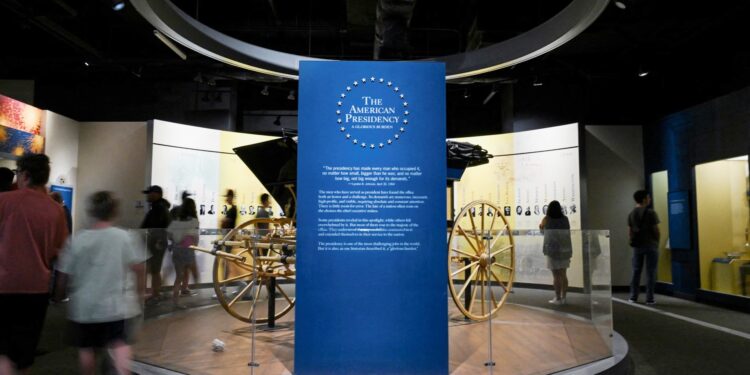The Trump administration has launched a sweeping review of the Smithsonian Institution, accusing its museums of promoting “anti-American” narratives and demanding revisions to exhibits that focus heavily on slavery, racial injustice, and other sensitive historical issues.
Directives to review exhibits
The White House confirmed that eight Smithsonian museums, including the National Museum of American History and the National Museum of African American History and Culture, have been ordered to submit their public content for review within 30 days. The directive, backed by an executive order signed earlier this year, mandates that “divisive or anti-American” narratives be removed or reframed to emphasise “patriotism and national achievement.”
President Trump, speaking on Truth Social, criticised the Smithsonian as “out of control,” saying its current exhibits fail to highlight the country’s successes and instead “teach generations to hate their own history.” Federal funding, which makes up a significant portion of the Smithsonian’s budget, is being considered as leverage to enforce compliance.
Smithsonian response and internal pressures
Smithsonian Secretary Lonnie Bunch has acknowledged the directive but emphasised the institution’s commitment to “accurate and rigorous scholarship.” Staff members are reportedly under pressure to adjust displays and educational materials, particularly those covering subjects such as slavery, civil rights, and the impeachment of President Trump, which has already seen its presentation toned down in certain exhibits.
Despite internal discussions, the Smithsonian has refrained from openly challenging the order, instead signalling a willingness to engage with federal reviewers while maintaining the integrity of its research and curatorial processes.
Support and criticism
Supporters of the administration’s move argue that the museums have become overly politicised and should prioritise narratives that foster national pride. Critics, including historians and academic groups, warn that the effort amounts to censorship and risks undermining public trust in cultural institutions.
“This is a dangerous precedent,” one historian said. “When political agendas dictate what is displayed, the public loses access to a truthful and comprehensive view of our history.”
Broader cultural implications
The Smithsonian campaign is part of a wider anti-woke agenda that has targeted universities, public broadcasting, and other cultural organisations. Analysts say the move reflects a growing battle over how American history should be told as the country approaches its 250th anniversary in 2026.
The outcome of the review could reshape the way future generations encounter the nation’s past, with profound implications for public education and historical discourse. For now, the Smithsonian faces the challenge of balancing political pressure with its mandate to provide accurate, inclusive, and evidence-based storytelling.
REFH – Newshub, 21 August 2025


Recent Comments